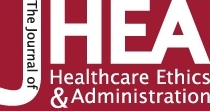Back Issue: Vol.9 No.2 (Fall 2023)
ISSN 2474-2309
systematic review
- Rafaela Schaefer, Priscila Pereira da Silva Lopes, Camila Goulart Domingues, Martina Teixeira Ortega, Francine Ferreira Ribeiro, Manoela Zen Ramos
Address correspondence to: Rafaela Schaefer. E-mail rafaschaefer@unisinos.br Universidade do Vale do Rio dos Sinos – UNISINOS, Brazil.
Priscila Pereira da Silva Lopes. E-mail pri08silva@gmail.com Universidade do Vale do Rio dos Sinos – UNISINOS, Brazil.
Camila Goulart Domingues. E-mail cgoulartd@gmail.com Universidade do Vale do Rio dos Sinos – UNISINOS, Brazil.
Martina Teixeira Ortega. E-mail martinaortega@edu.unisinos.br Universidade do Vale do Rio dos Sinos – UNISINOS, Brazil.
Francine Ferreira Ribeiro. E-mail francineferreiraribeiro@hotmail.com Universidade do Vale do Rio dos Sinos – UNISINOS, Brazil.
Manoela Zen Ramos. E-mail manoelaramos99@gmail.com Universidade do Vale do Rio dos Sinos – UNISINOS, Brazil.
Pages: 1-12
An organization’s ethical climate reflects organizational practices, procedures, and policies with moral consequences and demonstrates the influence of the workplace on ethical practice. The aim of this article is to analyse ethical climate in health care facilities and the factors associated therewith. This is a systematic literature review. The searches were conducted in January 2023 in the Embase, Scopus, PUBMED, and BVS databases using the keyword ‘hospital ethical climate survey’. Studies that had administered the 26-item scale in its original, translated or adapted version to health care professionals and described their respective scores were included. Studies that used the HECS in a reduced form, as well as theoretical studies, reviews, theses, and dissertations, were excluded. Twenty-three studies published between 2009 and 2022 were selected. The mean score for organisational ethical climate was 3.51, and scores ranged from 3.19 to 3.82, with the less ethical climate scores for the ‘physicians’ subscale and the highest scores for the ‘peers’ subscale. The organizational ethical climate showed a statistically significant association with sociodemographic and work variables: a positive ethical climate reduces moral distress, burnout, mistakes, and intention to leave the job, while it increases job satisfaction, ethical leadership, perceptions of quality, competence, and empowerment. The organizational ethical climate can affect the decision-making and ethical behaviour of health care professionals, thus influencing workplace well-being and the quality of care delivered. Actions to promote a positive ethical climate should be implemented.
Research Ethics
- Daniel DiSandro
Address correspondence to: Daniel DiSandro, Research Fellow at the Institute of Clinical Bioethics – Saint Joseph’s University. Email: dd717144@sju.edu Phone: 609-251-2215
Pages: 13-25
The mpox pandemic of 2022 signaled the global reemergence of a virus that had for years been endemic in Africa. While now the global outbreak has been relatively contained, the early months of the U.S. response were characterized by stigma, deficient resources, and a lack of coordination as thousands of individuals suffered. This paper first analyzes the history and origin of the monkeypox virus to put the current outbreak in context and illustrate what has and has not been learned. The medical aspects of the virus itself will be presented along with transmission, prevention, and treatment details. Next, despite the criticisms drawn from the U.S. public health response to the COVID-19 pandemic, the response to the mpox outbreak will be highlighted, focusing on the missteps and analyzing the consequences of the ill preparedness. Then, in order to begin remedying many of the issues seen over the past year, this issue is analyzed from a Catholic Social Teaching perspective to establish an ethical basis for the U.S.’s future responsibilities to its citizens and the world. Lastly, recommendations will be made to prepare the country for the next pandemic using language, federal, sexual health, vaccination, and research perspectives.
